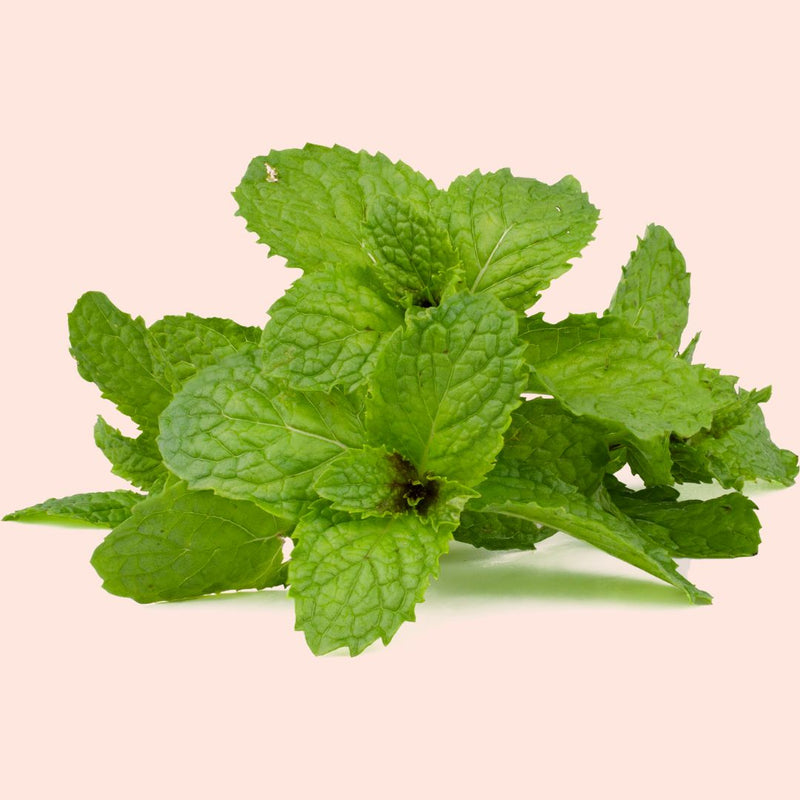Coughing is often considered to be a normal reaction of bringing irritants out of the throat and airways, but chronic coughs are uncomfortable and tiring. Although medications are helpful, some individuals use natural methods to tone down the symptoms, such as essential oils. Essential oils are vegetable-based and contain healing properties that can dissolve congestion, linger in the throat, and aid in respiratory health. The most common application method, used before coughing, is inhalation or diffusion, or diluted local application. This article discusses the 10 best essential oils for coughing, their perceived advantages and how they can be utilised to encourage better breathing and relaxation.
Top 10 Essential Oils For Mucus Cough and Phlegm
Essential oils also provide a natural remedy to the issue of coughs as they are used to keep the throat calm, clear the airways, and alleviate irritation. Due to their antibacterial, anti-inflammatory, and decongestant uses, they are comforting during the cold and flu season. The ten best essential oils to cope with cough are presented below, as well as how these oils will make your cough more effective.
1. Eucalyptus Essential Oil for Cough
One of the most effective therapies against coughs is Eucalyptus essential oil because it has a decongestant effect. Its fresh fragrance aids in clearing up congested breathing passages and in loosening phlegm so that breathing becomes easier. Breathing in steamed eucalyptus oil or placing it in a diffuser will clear a chest or throat.
When it is mixed with water and applied externally (to the chest), it causes warmth. It is an important oil beneficial for coughs due to common cold, flu or respiratory infections.
2. Peppermint Essential Oil for Cough
Peppermint essential oil is cool and soothing to the throat and respiratory passages, and contains menthol. It has a pleasing smell, which can ease stuffiness in the nose and improve the process of breathing. 
Peppermint essential oil taken in a steam or diffuser lessens coughing and irritation. Massaging a diluted blend on the back or chest will help relieve the tightness and spasms of coughing. Peppermint oil is particularly effective when it comes to relieving dry coughs and acts to soothe irritated air passages.
3. Oregano Essential Oil for Cough
Oregano essential oil is a rich source of antimicrobial and antiviral substances and, thus, can be used as an effective method of treating infection-related coughs. Its components, which have very high concentrations and are potent, like carvacrol, attack respiratory pathogens and inflamed airways.
A couple of drops of oregano essential oil in a diffuser helps with immune stimulation and alleviating coughs. It can be massaged on the chest when mixed with a carrier oil to provide extra relief. Oregano essential oil should be used in small quantities because it is very strong.
4. Camphor Essential Oil for Cough
Camphor essential oil is an old, conventional technique of treating cough and congestion. Its refreshing, penetrating aroma opens the nasal passages and releases tight chests. Cough is relieved by inhalation of steam or with the help of camphor oil in a chest rub to prevent the appearance of persistent coughing.
Camphor mixed with carrier oils can also be rubbed on the torso and neck to generate a warming effect. Its anti-inflammatory effect is beneficial in soothing coughs related to the common cold and cold-weather respiratory pains.
5. Cedarwood Essential Oil for Cough
Cedarwood essential oil has a warm, woody aroma that helps in relieving respiratory problems and blocks coughing. This has an antispasmodic effect that also helps to reduce coughing spasms and soothe the throat irritation. Inhaling cedarwood essential oil through a diffuser allows for expansive clearance of airways and congestion reduction.
Diluted topical application on the chest or throat gives relief, especially during night time coughing spasms. Its herbal scent also aids in relaxation, helping it be simpler to rest when struggling with a persistent cough. Cedarwood oil is a soft, natural remedy for respiratory aid.
6. Clove Essential Oil for Cough
Clove essential oil can be used extensively on microbes, as well as to calm coughs, due to its antimicrobial and expectorant qualities. It has a warm and spicy smell that clears the mucus and soothes a sore throat. The steam and diffusion inhalation lessen coughing attacks and enhance respiratory selectivity outcomes.
Diluted clove oil may also be rubbed on the chest or throat to gain relief. The oil is especially helpful with infections related to coughs, and is both a soothing and protective influence on the respiratory system.
7. Frankincense Essential Oil for Cough
Frankincense essential oil has anti-inflammatory and soothing properties that help ease coughing and breathing difficulties. Its gentle, grounding aroma relaxes the airways and supports clear breathing. Diffusing frankincense oil reduces throat irritation and calms persistent coughs.
When diluted and applied topically to the chest, it promotes easier breathing and relaxation. Frankincense oil also supports overall immune function, making it a great addition during cold and flu season. Its calming nature provides both respiratory and emotional relief.
8. Ginger Essential Oil for Cough
Ginger essential oil is warming and soothing, making it a helpful remedy for coughs caused by colds or flu. Its anti-inflammatory properties calm irritated airways and reduce coughing spasms. Inhaling ginger essential oil through steam or using it in a diffuser relieves congestion and throat discomfort.
Diluted application on the chest provides warming effects that ease breathing. Ginger essential oil also boosts circulation and immunity, supporting faster recovery. Its spicy aroma provides comfort, especially during seasonal respiratory discomforts.
9. Lavender Essential Oil for Cough
Lavender essential oil is well known for its calming and soothing effects, making it useful for cough relief. Its mild anti-inflammatory properties help reduce throat irritation and ease coughing. Diffusing lavender oil promotes relaxation while supporting clear breathing.
Diluted topical application on the chest or neck provides comfort during coughing episodes. Lavender also promotes better sleep, which is especially beneficial when coughing disturbs rest. Its gentle floral aroma makes it a versatile oil for both stress and respiratory relief.
10. Lemon Essential Oil for Cough
Lemon essential oil is refreshing and cleansing, making it effective for coughs caused by colds or congestion. Its antimicrobial properties help fight respiratory infections while its uplifting aroma promotes easier breathing. Inhaling lemon oil through a diffuser clears mucus and reduces throat irritation. Diluted application on the chest or back provides soothing effects.
Lemon essential oil also supports the immune system, helping the body recover more quickly from cough-related illnesses. Its citrus scent adds energy and freshness during recovery.
Essential Oil Recipe for Cough
A simple essential oil diffuser blend can provide quick relief from cough and congestion. This natural remedy combines oils with decongestant, antimicrobial, and soothing properties to help open airways, ease breathing, and calm persistent coughs.
Ingredients
- 3 Drops of Eucalyptus Essential Oil
- 2 Drops of Peppermint Essential Oil
- 2 Drops of Lemon Essential Oil
- 1 Drop of Frankincense Essential Oil
Directions
- Add all oils to your diffuser with the recommended amount of water.
- Diffuse for 30–60 minutes in your room to relieve cough, clear congestion, and promote easier breathing.
Frequently Asked Questions
Essential oils can be powerful natural remedies for coughs, but many wonder how and where to use them effectively. To help, here are some frequently asked questions with simple answers about using essential oils safely and effectively for cough relief and better respiratory health.
Q1. Where do you put peppermint oil for a cough?
Ans: Peppermint oil can be mixed with a carrier oil for use on the chest, back, and throat for cooling relief. Inhaling it through steam inhalation or diffusion also helps in congestion and cough relief. Always dilute first to avoid a skin reaction.
Q2. Do essential oils help with cough?
Ans: The use of essential oils is beneficial in relieving coughs because they open up respiratory passages, eliminate soreness, and loosen the pharynx. Yuzu oils are also effective, among others like eucalyptus oils, peppermint, and ginger oils. They are most effective when diluted, vaped, or used topically.
Conclusion
Essential oils offer a healthy, natural solution to help with coughing and congestion, as well as breathing difficulties. Each essential oil comes with different benefits of relief, from eucalyptus to lemon. They relieve congested breathing, whether providing relief through diffusion, inhalation, or topically with direct application.
DISCLAIMER
This content is for informational purposes only and is not a substitute for professional medical advice, diagnosis, or treatment. Always consult a healthcare provider before using essential oils for any health condition.





















